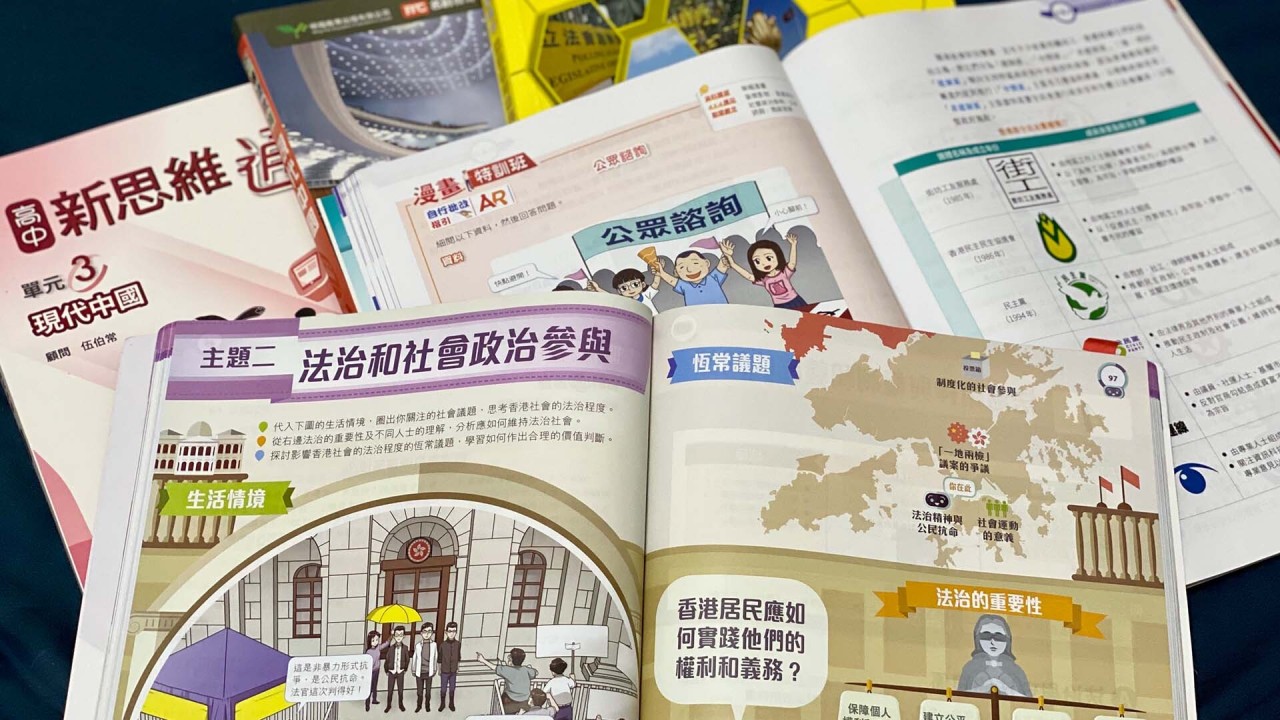
How best to include national security education in Hong Kong schools
- Allowing schools to devise their own strategies to teach national security not only puts the burden on overworked staff, but could also lead to varying outcomes
- A single-subject solution concerned with civic education would be better, even after the botched roll-out of a national education curriculum in 2012
Of course, the focus of the programme is the national security law itself, but the broader context presented here is important to note.
National education, or education for national identity building, has a long history in Hong Kong’s post-handover period. National identity discourse was present in the early discussions of curriculum reform at the turn of the century.
There were multiple voices with different agendas. In civil society, there was an effort to build democratic education into the reform process. Within the government, and particularly on the part of the chief executive, Tung Chee-hwa, there were concerted efforts, often stated publicly, to ensure that a key aspect of civic education was developing a “passion” for China.
This tension between those who supported Hong Kong’s democratic development and those who wanted closer integration with China has continued to the present day. National security education brings us back to these early debates with its focus on China. There are lessons to be learned here.

Community pressure groups “won” on that occasion, and the proposal was withdrawn. The result, however, is the new programme for national security education. What had been politically impossible in 2012 was achieved in a vastly different form in 2021.
The tensions apparent in Hong Kong since 1997 are part of the context in which national security education will be implemented. The strategy with national security education is both school-based and cross-curriculum: schools are urged to “make necessary enrichment to the recommended measures or adopt other appropriate strategies in devising and implementing relevant plans and measures”, in accordance with the guidelines and their own needs.
This reliance on schools points to a challenge for the implementation process. There are guidelines, curriculum materials and resources to assist schools and there are suggestions about using different school subjects for integrating information about national security education. These are designed to assist schools yet they do not address a key issue.
Schools need to balance time, priorities and resources in a heavily exam-oriented education system. No additional time has been provided for national security education, so existing school subjects need to carve out time to include it. This is a fragile process that will vary from school to school under constraints imposed by the school community, leadership and the capacity of teachers.
The outcomes of such a process are uncertain since there is likely to be a significant and unpredictable variation across schools. So, is there a better way?
What has always been missing in Hong Kong, at least since 1997, has been a consolidated single subject with a specific time allocation for civic education. The proposal for national security education continues to rely on adopting cross-curriculum and extra-curriculum processes, avoiding once again the single-subject solution.

The 2011-2012 unsuccessful attempt at introducing such a solution may have been responsible for not returning to it in 2021. Yet those were very different times. There are good reasons in the current context for considering ways in which national security education can be built into a broader civic education.
A single school subject concerned with civic education for future citizens can claim time in the school curriculum – this is a prime reason for adopting such a solution.
The subject itself can provide a holistic view of Hong Kong’s political institutions and laws (including the Basic Law and the national security law, but also the broader institutions that govern Hong Kong’s political life), the processes for responsible participation in civic life (including voting, engagement in political parties, constructive use of social media, contributions to major civic issues confronting society) and civic values (including respect, tolerance, caring, and personal, social, national and global identities).
The advantage of such an approach is that young citizens will be introduced in a holistic way to Hong Kong’s civic system and will have the opportunity to engage with key issues, including national security education. Understanding the whole system, and the context in which it is embedded, would go a long way towards helping students develop strong and enduring civic understanding and civic values.
These are essential not only here in Hong Kong. Understanding and values are needed everywhere to ensure better informed and engaged citizens in a challenging global environment.
Kerry Kennedy is professor emeritus and adviser (academic development) at The Education University of Hong Kong


